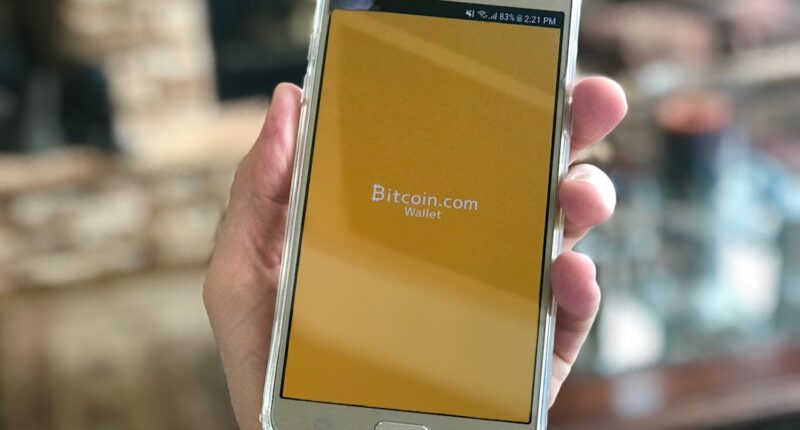Non-fungible tokens (NFTs) have taken the digital world by storm, revolutionizing the way we buy, sell, and trade digital assets. NFTs are unique digital tokens that represent ownership or proof of authenticity of a specific item or piece of content, such as artwork, music, videos, and even tweets. Unlike cryptocurrencies like Bitcoin or Ethereum, which are fungible and can be exchanged on a one-to-one basis, NFTs are non-fungible, meaning each token is unique and cannot be exchanged on a like-for-like basis.
NFTs are typically built on blockchain technology, which provides a secure and transparent way to verify ownership and provenance of digital assets. This has opened up new opportunities for creators and artists to monetize their digital work in a way that was not possible before. The NFT market has seen explosive growth in recent years, with high-profile sales of digital art fetching millions of dollars. As the NFT space continues to evolve, it is important for both creators and investors to understand the risks and security concerns associated with this emerging industry.
Risks Associated with NFTs
While NFTs have the potential to revolutionize the digital art and collectibles market, there are several risks associated with investing in and trading NFTs. One of the main risks is the speculative nature of the market, which can lead to extreme price volatility and potential losses for investors. The value of NFTs is largely driven by demand and speculation, which can be influenced by factors such as celebrity endorsements, media hype, and market trends. This can create a bubble-like environment where prices are driven up artificially, leading to potential crashes and losses for investors.
Another risk is the lack of regulation and oversight in the NFT market, which can make it vulnerable to fraud and scams. Due to the decentralized nature of blockchain technology, it can be difficult to verify the authenticity and provenance of NFTs, leading to potential disputes over ownership and copyright infringement. Additionally, the high fees associated with minting, buying, and selling NFTs on popular platforms can eat into profits and make it difficult for smaller artists and creators to participate in the market.
Security Concerns for NFT Artists
For artists and creators looking to enter the NFT space, there are several security concerns to be aware of. One of the main concerns is the risk of intellectual property theft and copyright infringement. Once an NFT is minted and sold, it can be difficult to control how it is used or distributed, which can lead to unauthorized reproduction and distribution of digital artwork. This can devalue the original work and lead to financial losses for the artist.
Another security concern is the risk of platform hacks and data breaches. Many NFT marketplaces and platforms store sensitive information such as private keys and wallet addresses, which can be targeted by hackers. In recent years, there have been several high-profile hacks of NFT platforms, leading to millions of dollars in losses for artists and investors. It is crucial for artists to take proactive measures to secure their digital assets and use reputable platforms with strong security measures in place.
Job Opportunities in the NFT Industry
| Job Title | Skills Required | Salary Range |
|---|---|---|
| NFT Developer | Solidity, Web3, Smart Contracts | 80,000 – 150,000 |
| NFT Marketing Specialist | Digital Marketing, NFT Promotion | 60,000 – 100,000 |
| NFT Community Manager | Social Media Management, Community Engagement | 50,000 – 80,000 |
| NFT Art Curator | Art History, NFT Curation | 40,000 – 70,000 |
The rise of NFTs has created a range of job opportunities in the digital art and blockchain space. One of the most in-demand roles is that of an NFT artist or creator, who can leverage their digital skills to create unique and valuable NFTs for sale on various platforms. Additionally, there is a growing demand for blockchain developers and engineers who can build and maintain the infrastructure for NFT marketplaces and platforms.
Another emerging role is that of an NFT consultant or advisor, who can help artists and creators navigate the complex world of NFTs and make informed decisions about minting, selling, and trading digital assets. There is also a need for legal experts who specialize in intellectual property law and can help artists protect their rights and navigate potential disputes in the NFT space.
Recent News and Developments in the NFT Space
The NFT space has seen rapid growth and development in recent years, with several high-profile sales and partnerships making headlines. One notable development is the collaboration between traditional art institutions and NFT platforms, with major museums and galleries exploring ways to tokenize their collections and make them accessible to a global audience. This has the potential to democratize access to art and create new revenue streams for cultural institutions.
Another recent trend is the rise of social media platforms integrating NFT features, allowing users to mint and trade digital assets directly on their favorite social networks. This has the potential to bring NFTs to a wider audience and create new opportunities for artists to monetize their work. Additionally, there has been a growing interest in using NFTs for digital identity verification and authentication, with potential applications in areas such as gaming, virtual reality, and decentralized finance.
Protecting Your NFT Investments

As with any investment, it is important to take proactive steps to protect your NFT holdings from potential risks and security threats. One of the most important measures is to use reputable and secure platforms for buying, selling, and trading NFTs. It is crucial to research platforms thoroughly and ensure they have strong security measures in place to protect user data and digital assets.
Additionally, it is important to secure your digital wallets and private keys using best practices such as multi-factor authentication and hardware wallets. This can help prevent unauthorized access to your NFT holdings and reduce the risk of theft or fraud. It is also advisable to regularly monitor your NFT holdings for any signs of unauthorized activity or suspicious transactions.
Future Outlook for NFT Security
Looking ahead, the future outlook for NFT security is likely to be shaped by advancements in blockchain technology and increased regulatory oversight. As blockchain technology continues to evolve, we can expect to see new solutions for verifying ownership and provenance of digital assets, as well as improved security measures for protecting user data and digital wallets.
Additionally, as the NFT market matures, we may see increased regulatory scrutiny from government agencies seeking to protect investors and prevent fraud in the space. This could lead to new standards and best practices for NFT platforms and marketplaces, as well as increased transparency around the minting and trading of digital assets.
Overall, while there are risks and security concerns associated with NFTs, there are also opportunities for artists, creators, and investors to participate in this exciting new market. By staying informed about best practices for security and taking proactive measures to protect digital assets, participants in the NFT space can help ensure a safe and secure environment for buying, selling, and trading unique digital tokens.
If you’re interested in learning more about the security of NFTs, you should check out the article “The Importance of NFT Security” on NFT Jobs. This article delves into the various security measures that are in place to protect NFTs and the potential vulnerabilities that collectors and creators should be aware of. It’s a great resource for anyone looking to understand the security implications of NFTs.
FAQs
What are NFTs?
NFTs, or non-fungible tokens, are digital assets that represent ownership or proof of authenticity of a unique item or piece of content, such as artwork, music, videos, or collectibles, using blockchain technology.
How do NFTs work?
NFTs work by using blockchain technology to create a digital certificate of ownership for a specific item or piece of content. This certificate is unique and cannot be replicated, providing proof of authenticity and ownership.
Are NFTs secure?
NFTs are generally considered secure due to the use of blockchain technology, which provides a decentralized and tamper-proof system for recording ownership and transactions. However, there have been instances of NFT platforms being hacked or fraudulent NFTs being sold, so it is important for users to exercise caution and do their due diligence before purchasing or trading NFTs.
What are the security risks associated with NFTs?
Some of the security risks associated with NFTs include the potential for platform hacks, fraudulent or counterfeit NFTs, and the risk of private keys being compromised. Additionally, there may be legal and copyright issues related to the ownership and sale of NFTs.
How can NFT security be improved?
To improve NFT security, platforms can implement robust security measures, such as multi-factor authentication, encryption, and secure storage of private keys. Additionally, users should be vigilant and conduct thorough research before engaging in NFT transactions. Regulatory oversight and industry standards may also help improve the security of NFTs.





